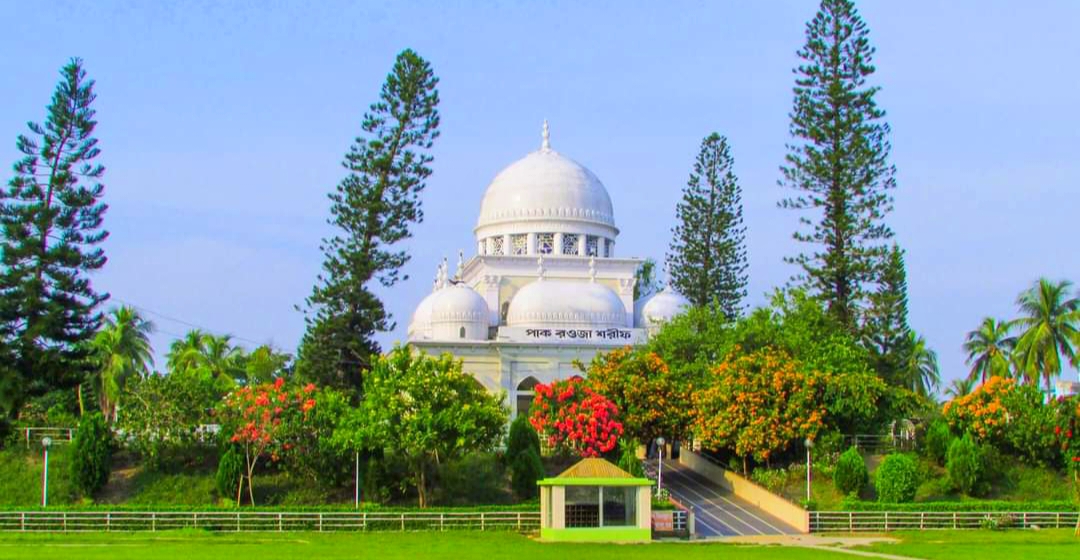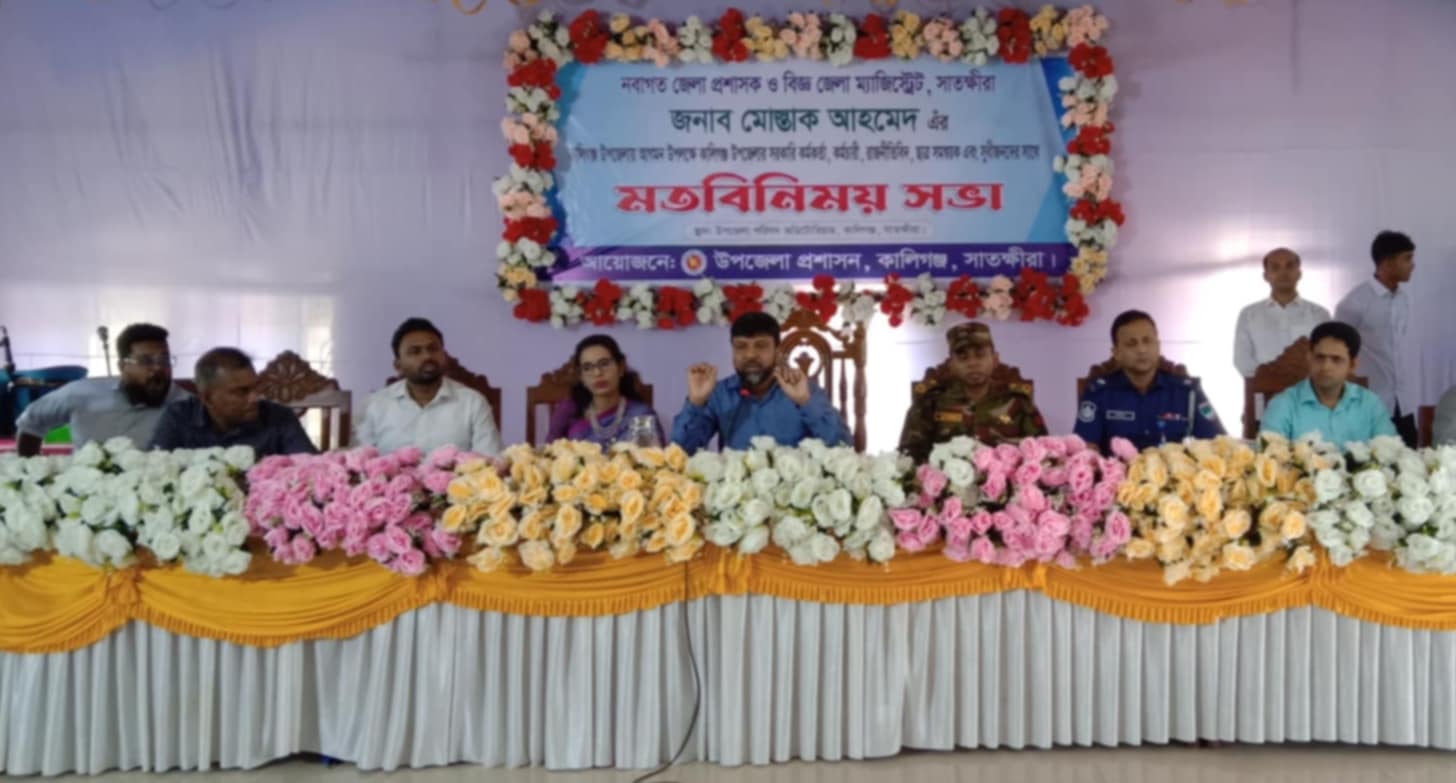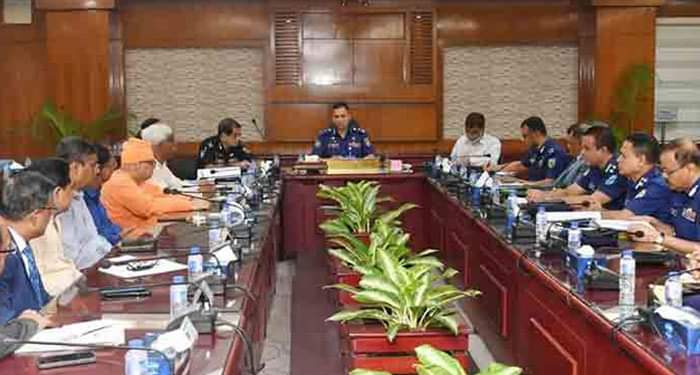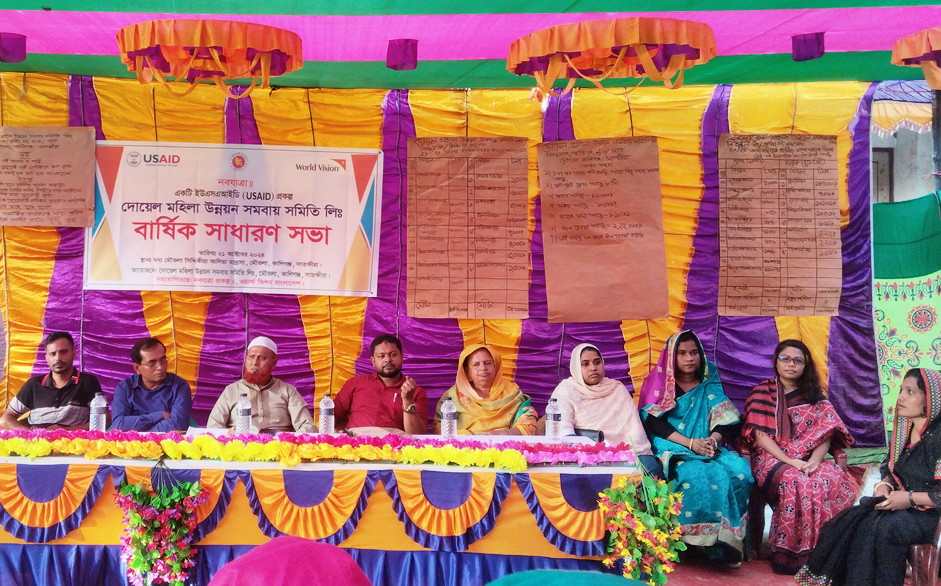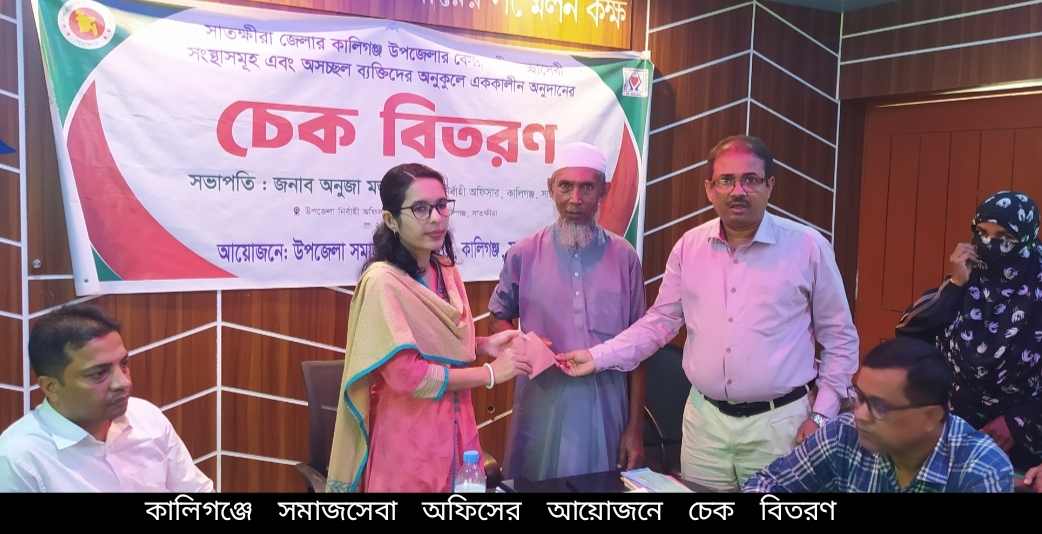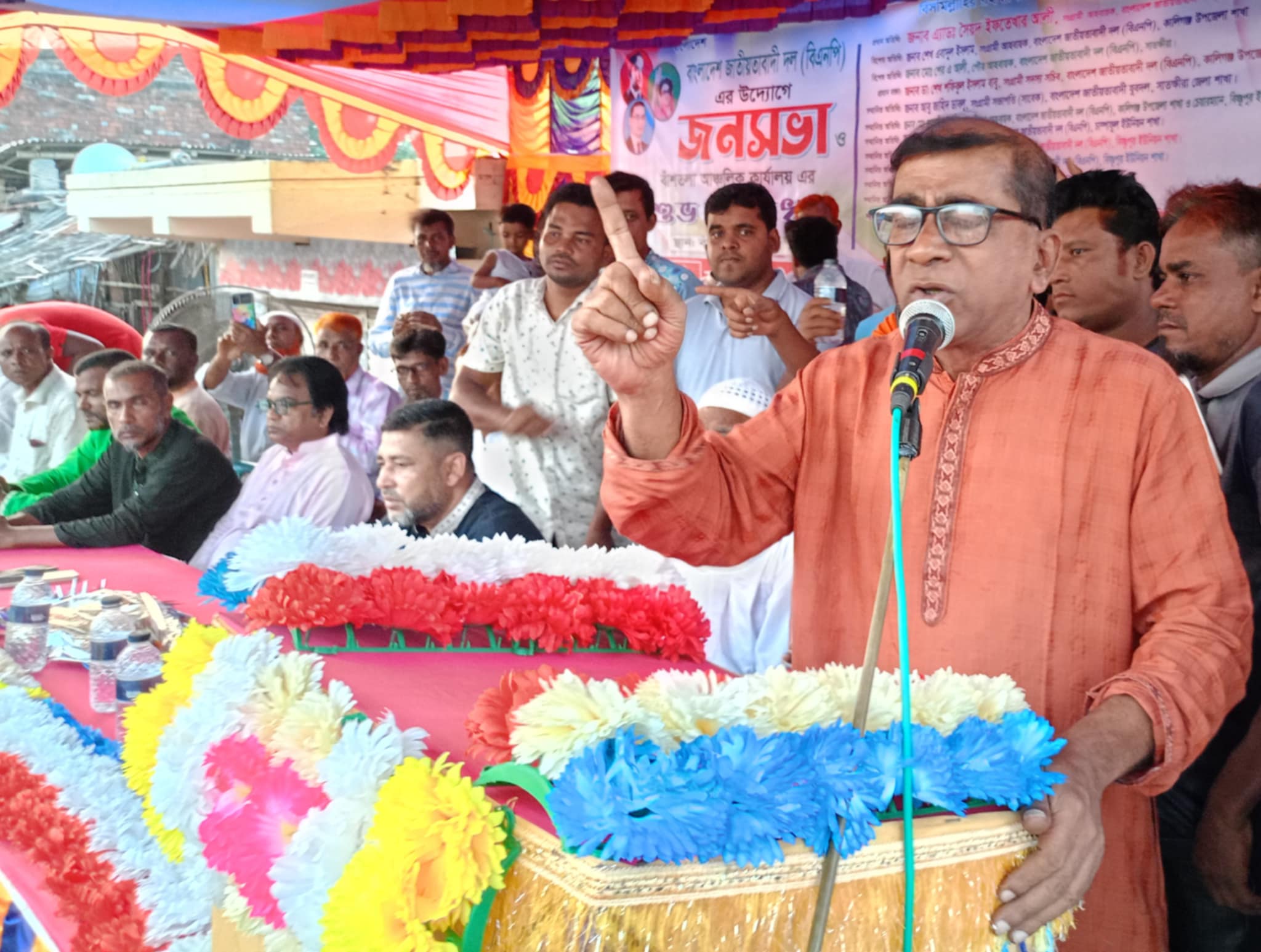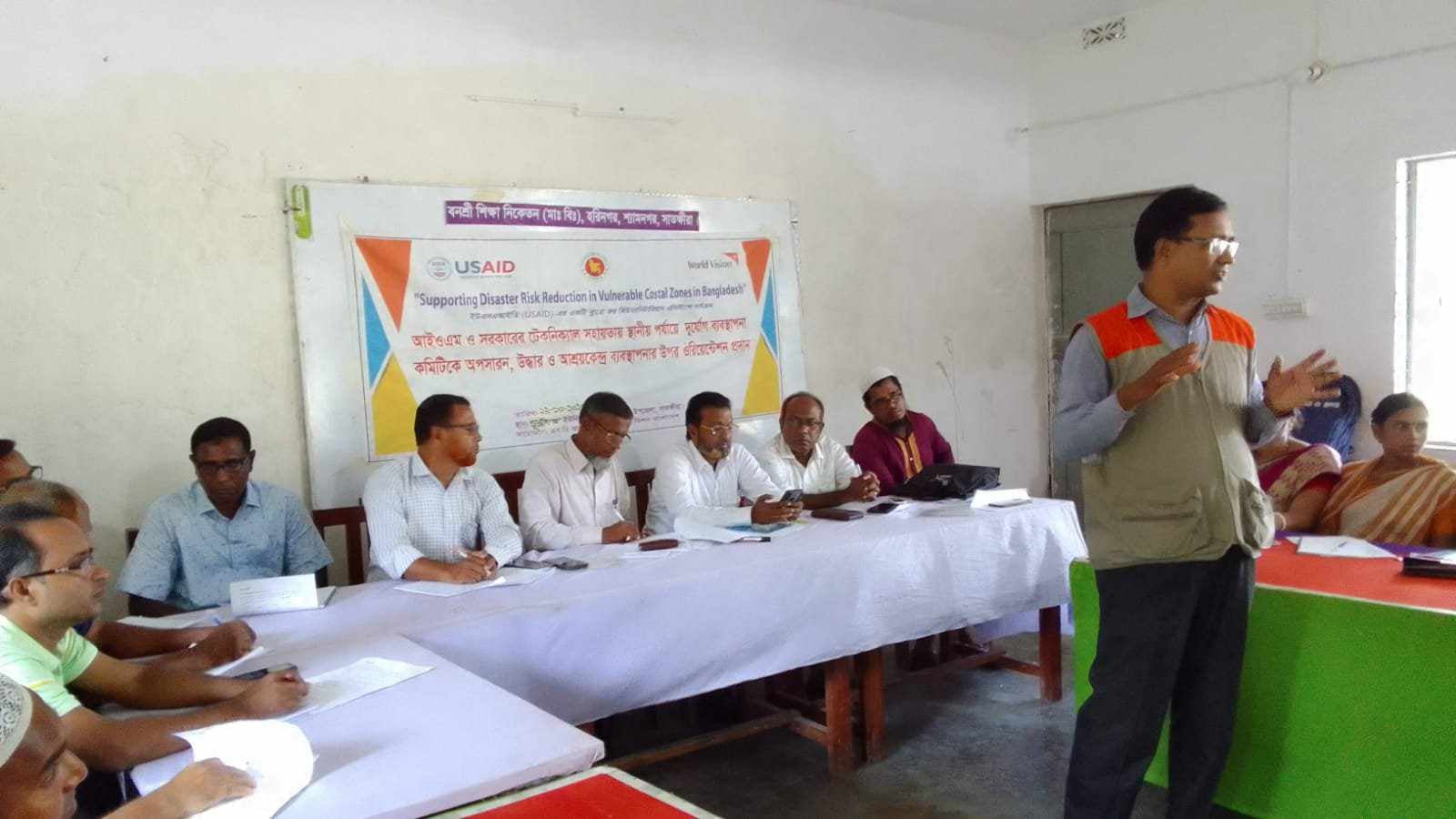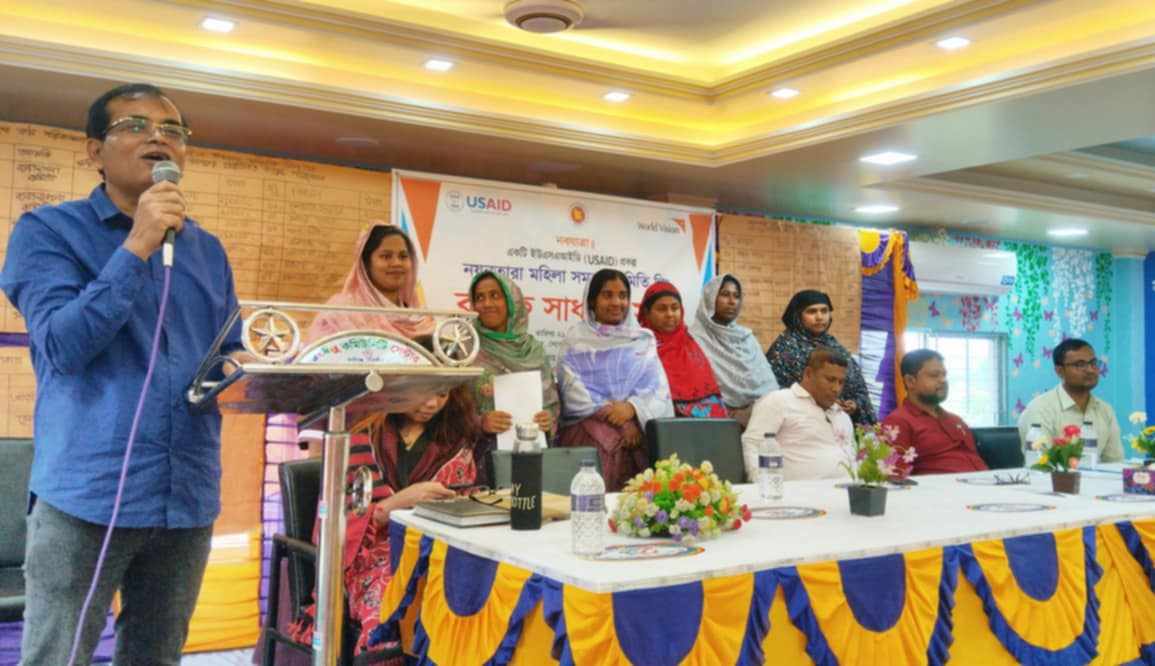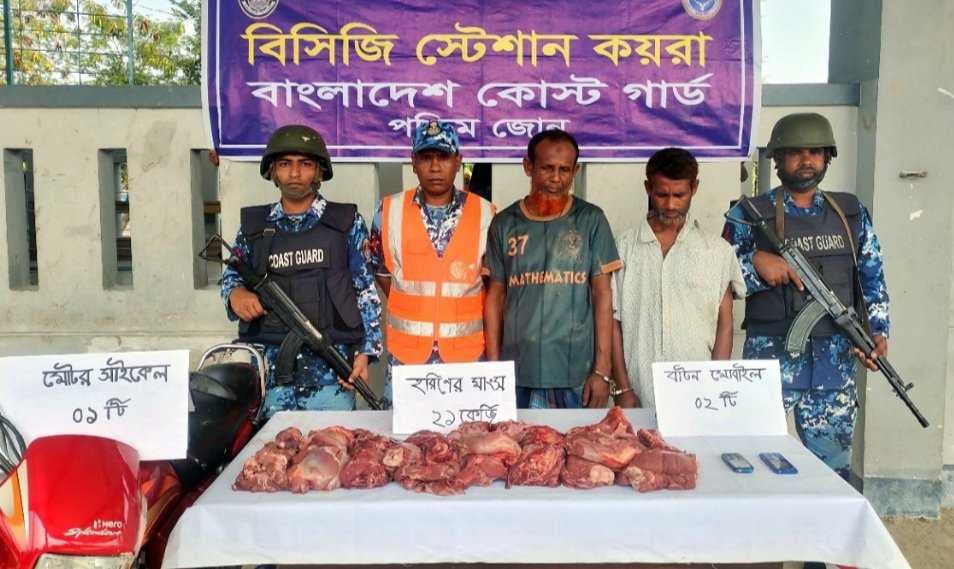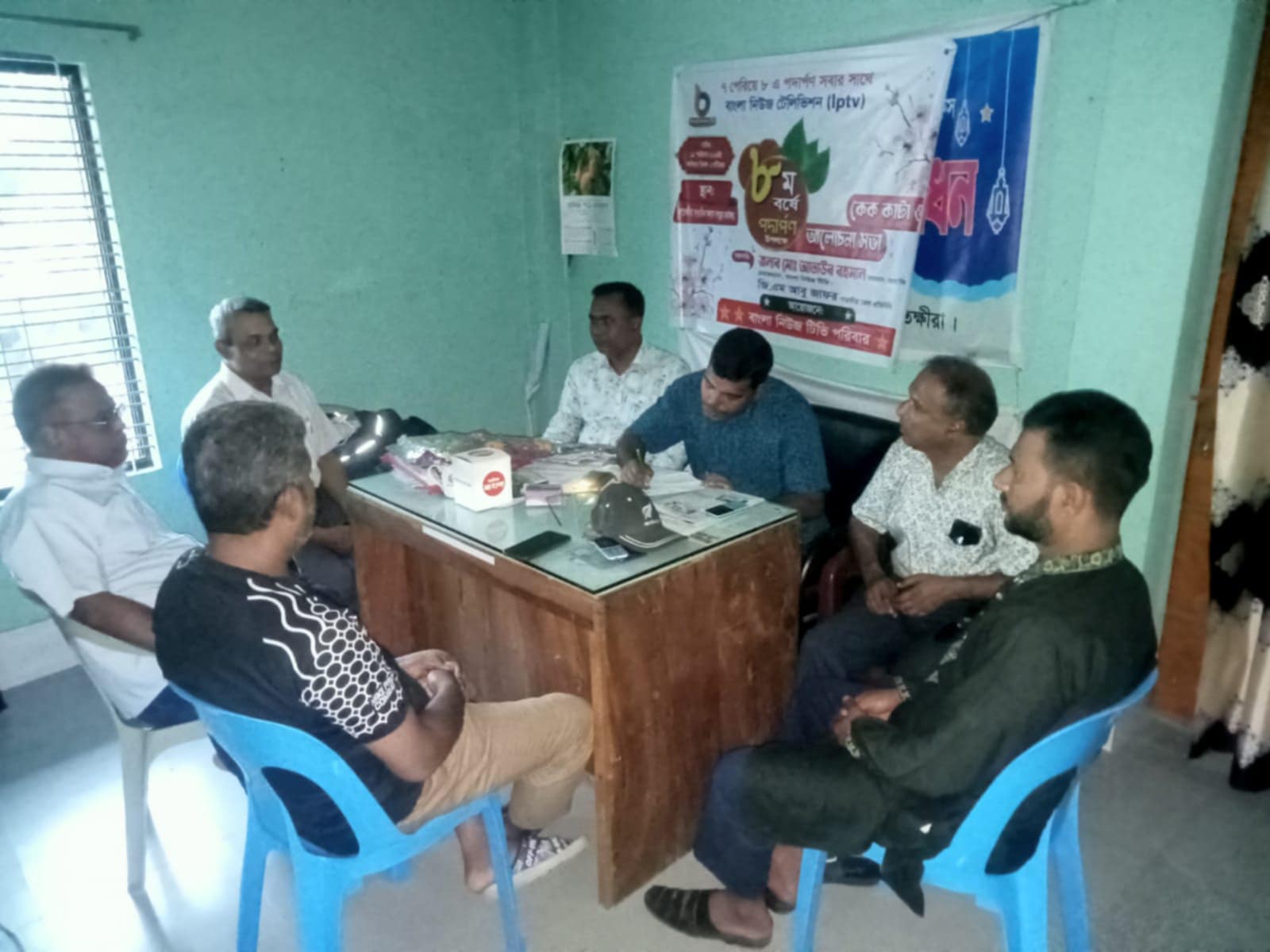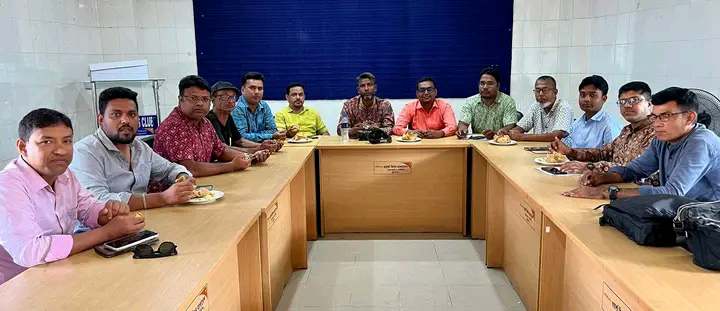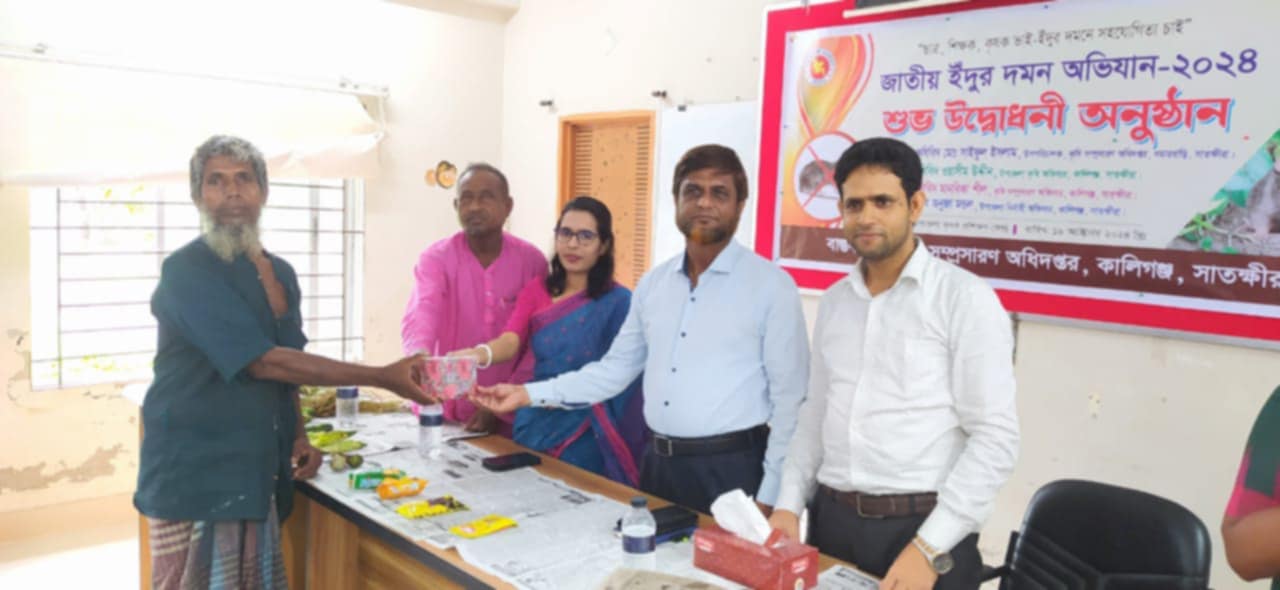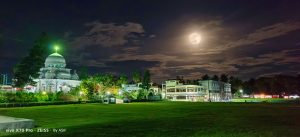
His appearance at the end of the British colonial rule in India at a turning point in history. In the subjugated homeland, social life became communally divided. The rise and development of Hazrat Khan Bahadur Ahsanullah (RA) was in an environment of self-organization in the context of a division and division created in the educational initiation and job professionalism.
Hazrat Khan Bahadur Ahsanullah (RA) was born in December 1873 in the holy land of Nalta Sharif in the current Satkhira district of South Bengal. He received his M.A. degree in Philosophy in 1895. His student life passed through various adversities. During his student life he repeatedly faced housing problems. At one time in Taki he took refuge in Rajakala (washer’s house). At that time he used half of Anang Babu’s cowshed for his kitchen. He used to pray at fixed times, with deep concentration from childhood. From childhood everyone including students and teachers were impressed by his behavior.
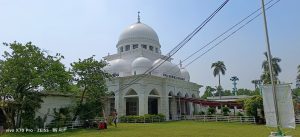
Hazrat Khan Bahadur Ahsanullah (RA) started his career as a temporary teacher in Rajshahi Collegiate School. Later he occupied important top positions like Assistant Director of Muslim Public Education in undivided Bengal i.e. East Bengal, West Bengal and Assam. He was the only Bengali officer who held such an important position. Before or after whom no other Bengali officer has qualified for such an important post. His career (1895-1929) was in various stages of the education department of undivided Bengal. It was not just a job for the sake of a job, his entire career was dedicated to reforming and improving the educational environment, methodology and process in the British colony of Bengal. During this time, he made an outstanding contribution through comprehensive reform and development work at various levels of the education department. Some of the issues in his huge work are highlighted:
1. At that time, it was customary to write the candidate’s name in every examination book of the university. As a result, the Muslim students of Calcutta University did not get top merit places or first division despite doing good exams because of communal attitude. With the initiative and efforts of Khan Bahadur Ahsanullah (R:), the method of writing the roll number instead of the candidate’s name was first introduced in the answer sheet of the Honors and MA examinations. Later, the method of writing roll numbers was introduced in the case of IA and BA examinations as well.
2. Students who passed madrasa of secondary and higher secondary level could not get admission in college. He coordinated the quality of education in schools and madrasas. As a result, madrasa students get admission in colleges and universities.
3. At that time all schools and colleges did not have the post of Maulbi, he created the post of Maulbi in all schools and colleges and abolished the special disparity in the pay of Pandit and Maulbi.
4. Dhaka University, the institution that played an outstanding role in the development of Bengali ethnicity; After the draft bill for the establishment of Dhaka University was presented in the Senate of Calcutta University, great controversy arose. A special committee was formed. Khan Bahadur Ahsanullah (RA) made an unforgettable contribution to the establishment of Dhaka University as a member of this committee. Apart from this, he has several other important roles in the context of the establishment of Dhaka University. Which the people of this country will always remember with respect.
5. Within a month of assuming the post of Assistant Director of Public Instruction for Mohammedans, he took the initiative to establish a college for Muslims. Calcutta Islamia College was established as a result of his tireless efforts.
6. The then government entrusted the responsibility of Muslim education to Hazrat Khan Bahadur Ahsanullah (RA). As a result, many Maktab Madrasahs, Muslim High Schools and Colleges were established under his supervision.
He was also entrusted with the appointment of Muslim teachers in non-Muslim schools and the appointment of Muslim employees in other government departments. On this occasion he introduced the rules of selection of individual Maktab texts and circulation of books by Muslim authors only for the education of Muslim students and obtained the approval of the Govt. As a result, new impetus came to Muslim education. Muslim students get equal opportunity to progress along with Hindus.
7. The scholarship scheme is specified for Muslim students. His opinion was sought before the distribution of scholarships to all classes of schools.
8. The number of Muslims among the examiners is determined. The amount of scholarship for Muslims is increased.
9. He managed to establish Fuller Hostel in Rajshahi in spite of many adversities to solve the residential problems of Muslim students. The hostel plays a special role in promoting Muslim education in Rajshahi. Established Baker Hostel, Teller Hostel, Carmichael Hostel, Moslem Institute for Muslim students in Calcutta.
10. Muslim literature gained immense popularity. Muslim writers got new inspiration.
11. Rules for providing government aid to Muslim students for overseas education are set out.
12. Muslim members were appointed to the Textbook Committee, and Islamic words began to be used in Muslim texts.
13. Madrasahs of Ghabi Jhapyababs were created and English education was provided through the medium of Arabic education.
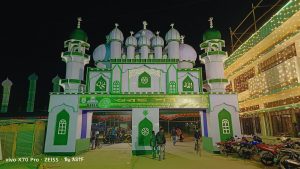
Khan Bahadur Ahsanullah (RA) is one of the famous writers of the post-Bengal movement. He produced many valuable books on language and literature, teacher training and educational policy, biography, history, Qur’an and Hadith, Islamic law, discussions of different religions, children’s literature, etc.
Paving the way for the revival of national life was the main feature of his literature. Tradition, modernity and free religious spirit were the main stimuli of his renaissance. ‘His attraction to literature is to propagate the idealism of human life. He saw life as the unfolding program of the human spirit. That is why he felt the need to propagate the ideals of human life formation through literature.
Some of his notable books are: Physic Education (1905), Hazrat Muhammad (1931), Islam Rabi Hazrat Muhammad, The Gift of Islam (1958), Historz of The Muslim World (1931), My Way of Life (1946), Islam and Adarsh Mahapurush (1926), Devotee’s Letters (1936), Bengali Language and Muslim Literature (1918), Bengali Muslims in Education (1931), Teachers’ Manual (1915), The Theory of Creation, Chufi, Tariqat Shiksha (1940), Mustafa Kamal 1934, Hejaz Travels (1929) etc.
Another important step of Khan Bahadur Ahsanullah (RA) in the spread of Muslim education and literature was the establishment of the Makhdumi Library. Many books of primary and secondary classes are published from this library. Books written by many new authors were also published from here. With the encouragement and inspiration of Makhdumi Library, many Muslim writers became interested in creative writing. Apart from Makhdumi Library, Provincial Library and Islamia Library were established under his inspiration.
Khan Bahadur Ahsanullah (R:) received rare recognition for his skills and talent at the beginning of his career. He received the title of Khan Bahadur from the British government in 1911. In the same year he became a Fellow of the Royal Society of London. In 1917-18, he was elected as the Vice-President of the Bengali Muslim Literary Society. In 1919, he became the first Muslim to join the Indian Education Service (IES). He was the first Muslim Senate and Syndicate member of Calcutta University. He was also a member of Dhaka University Court (Senate) since its inception. In 1960, the Bangla Academy awarded him an honorary fellowship in recognition of his distinguished and versatile contribution to Bengali literature. In 1986, he was awarded the Islamic Foundation Bangladesh (Posthumous) Award.
Hazrat Khan Bahadur Ahsanullah (RA) was the top local saint, dervish and auliya. Before and after birth, the arrival message of his beautiful future was known. He used to go door to door to devotees in different parts of Bangladesh and India for most of the year to give spiritual teachings to people. One of the aims of his life was to bring people to God. He was engaged in this work till the end of his life. He never accepted money from devotees. He always treated his devotees as friends.
Possessing multifaceted talents, keen intellect, divine power, prudent, analytical, humanitarian, social welfare seeker, this thinker, in the light of his clean, liberal religion and social thinking, was born in 1935 in the village of Nalta Sharif in Satkhira district with the “great responsibility of developing the entire human society and shaping the spiritual life”. Established the mission. The main objective of the mission is ‘worship of God and service of creation’.
Inspired by this great ideal of the founder of the mission, more than one hundred branches of the mission in Bangladesh and outside the world are currently engaged in the service of humanity. Among the branch missions, Dhaka Ahsania Mission has been able to play a special role worldwide. For the purpose of selfless public service, many schools, colleges, madrasas, universities, libraries, medical centers, hospitals etc. are being established and run through Nalta Central Ahsania Mission and various branch missions. Notable among these are Ahsaniya Eye Clinic, Nalta Ahsaniya Mission Residential College, Ahsanullah University of Science and Technology, Ahsaniya Mission Cancer and General Hospital.
This rare personality Sultan Auliya, Qutubul Aktab, Gauche Zaman, Aref Billah, Shah Chufi Alhaj Hazrat Khan Bahadur Ahsanullah (RA) breathed his last on 9th February 1965 at 10:10 AM.
Although he went behind the scenes, his program for building society did not stop. Inspired by his great ideals, Ahsania Mission is playing a strong role in shaping the global society. His erudite and valuable works are accepted by the world as a source of manifold knowledge including philosophy of life. A special spiritual atmosphere has developed around his Rawza Sharif, as well as an extraordinary example of human service. Countless people of all religions visit him every day during his fast.
Personalities Sultan Auliya, Qutubul Aktab, Gauche Zaman, Aref Billah, Shah Chufi Alhaj Hazrat Khan Bahadur Ahsanullah (RA): Holy Orsh Sharif is being celebrated every year on 26, 27, 28 Magh, English February 9, 10, 11. A meeting of devotees-lovers has become a meeting of people from all walks of life. Waj mahfil is held for three days in this holy Orch Sharif and ends with final prayer. This year the 59th annual Orch Sharif will be held. A large number of devotees from all over the country gather and listen to religious discourses which are useful in human service and human welfare in realizing the “Service of God’s Creation”.
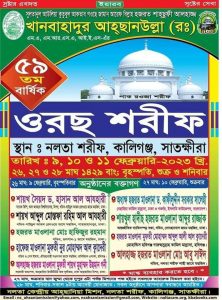
Hazrat Khan Bahadur Ahsanullah (RA) lives in the lives of millions of people today. His mission, his books and his spiritual presence have taken the seat of millions of hearts. His three-dimensional presence will lead the people of the world towards beauty and goodness in the hereafter; This is our conviction and belief. He has left behind a wonderful legacy of human service which could not have been achieved without his grace. He established the Ahsaniya Mission to provide the best service to all devotees. No anti-religious activities are allowed here, all activities are conducted under the round-the-clock supervision of the Central Mission.

